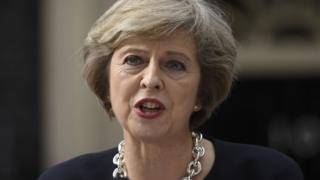Check the DRUDGE headlines this morning..................

Analysis: Trump Would Have Beaten Obama in '12!
THE NEW NEW WORLD ORDER...
Victory ensures conservative majority on Supreme Court for generation...
Californians plan secession...
Celebrity 'Moving Sale' Posters Flood LA... Liberals Compare to 9/11...
Justice Ginsburg 'Dissents'...
Win exposes social media's blind spot...
Pollsters suffer biggest embarrassment in history...
BLACK MOB VICIOUSLY BEATS WHITE TRUMP VOTER...
'You gonna pay for that shit!'...
Protests turn violent...
'People have to die'...
TWITTER Erupts With Assassination Threats...
Trump fared well with women voters despite media assault...
Unbearable smugness of the press...
DRUDGE REPORT 2016®
Who is this a nut sack kick for?
1) Obama
2) Aunt Hilda
3) Every asshat progressive in America!!
Have been kidding or 48 hours about the level of head explosions but this is serious derangement syndrome we are seeing.
And Im still laughing.........I suspect Im going to spend the next 4 years laughing!!



Analysis: Trump Would Have Beaten Obama in '12!
THE NEW NEW WORLD ORDER...
Victory ensures conservative majority on Supreme Court for generation...
Californians plan secession...
Celebrity 'Moving Sale' Posters Flood LA... Liberals Compare to 9/11...
Justice Ginsburg 'Dissents'...
Win exposes social media's blind spot...
Pollsters suffer biggest embarrassment in history...
BLACK MOB VICIOUSLY BEATS WHITE TRUMP VOTER...
'You gonna pay for that shit!'...
Protests turn violent...
'People have to die'...
TWITTER Erupts With Assassination Threats...
Trump fared well with women voters despite media assault...
Unbearable smugness of the press...
DRUDGE REPORT 2016®
Who is this a nut sack kick for?
1) Obama
2) Aunt Hilda
3) Every asshat progressive in America!!
Have been kidding or 48 hours about the level of head explosions but this is serious derangement syndrome we are seeing.
And Im still laughing.........I suspect Im going to spend the next 4 years laughing!!






